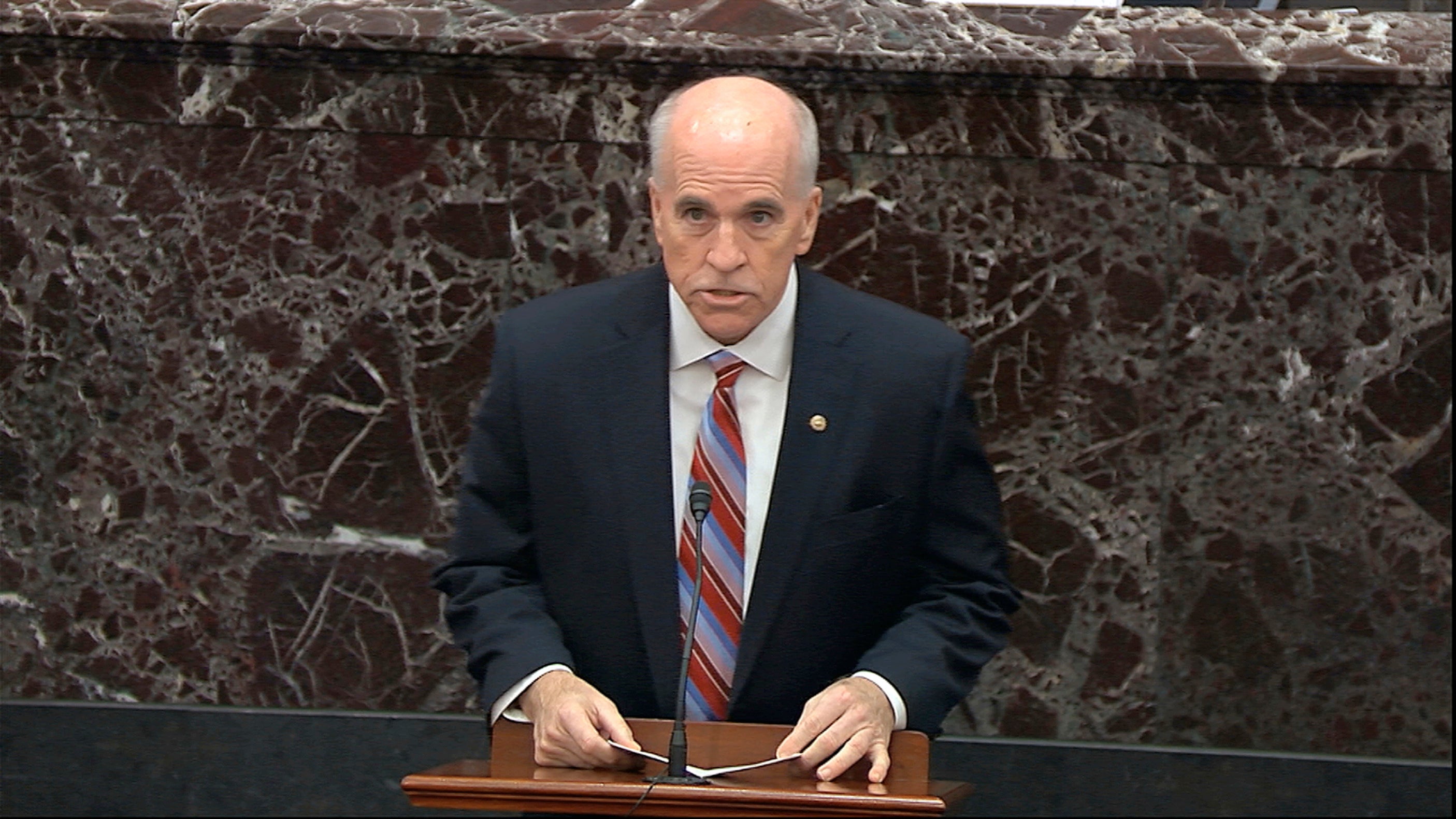US Senate sergeant-at-arms during Capitol riot dies at 71
The man who served as the U.S. Senate’s sergeant at arms and resigned after the Jan. 6 insurrection at the Capitol has died

Your support helps us to tell the story
From reproductive rights to climate change to Big Tech, The Independent is on the ground when the story is developing. Whether it's investigating the financials of Elon Musk's pro-Trump PAC or producing our latest documentary, 'The A Word', which shines a light on the American women fighting for reproductive rights, we know how important it is to parse out the facts from the messaging.
At such a critical moment in US history, we need reporters on the ground. Your donation allows us to keep sending journalists to speak to both sides of the story.
The Independent is trusted by Americans across the entire political spectrum. And unlike many other quality news outlets, we choose not to lock Americans out of our reporting and analysis with paywalls. We believe quality journalism should be available to everyone, paid for by those who can afford it.
Your support makes all the difference.Michael Stenger, who served as the U.S. Senate’s sergeant-at-arms and resigned after the Jan. 6 insurrection at the Capitol, has died. He was 71.
Stenger died Monday of natural causes, according to two people familiar with the matter. One of the people said he had been diagnosed with cancer and had been ill. The people would not discuss details of his condition publicly and spoke to The Associated Press on condition of anonymity.
Stenger had served in the role as the sergeant-at-arms of the Senate since 2018 and had previously worked for the U.S. Secret Service for more than three decades.
Sen. Mitch McConnell, who was majority leader at the time, requested Stenger’s resignation the day after the pro-Trump mob stormed the Capitol. The Senate’s top Democrat, Sen. Chuck Schumer, had vowed that he would fire Stenger when he became Senate majority leader later in the month.
The House sergeant-at-arms, Paul Irving, and Capitol Police Chief Steven Sund also resigned after the insurrection.
Stenger and Irving testified to the Senate Rules Committee in February 2021 about security at the Capitol, the response to the attack and the decision in the days leading up to the riot — as members of the Capitol Police Board, which oversees the force — to not have the National Guard at the Capitol in order to quell any violence. Stenger was also mentioned extensively in the committee’s report examining the attack.
News of Stenger’s passing on Tuesday fueled baseless conspiracy theories online, with some social media users calling his death “suspicious” and attempting to link it to the surprise Jan. 6 hearing announced just 24 hours earlier by the House committee investigating the Capitol insurrection. Stenger died of natural causes, and there is no evidence he was set to testify at that hearing. Cassidy Hutchinson, a Trump White House aide, testified before the committee.
Other posts misidentified Stenger’s cause of death, falsely claiming he was shot and killed in a street in a targeted attack. Those claims appeared to conflate details from a 2013 report about the unrelated death of a 20-year-old in California with the same name.
___
Tulp reported from New York.